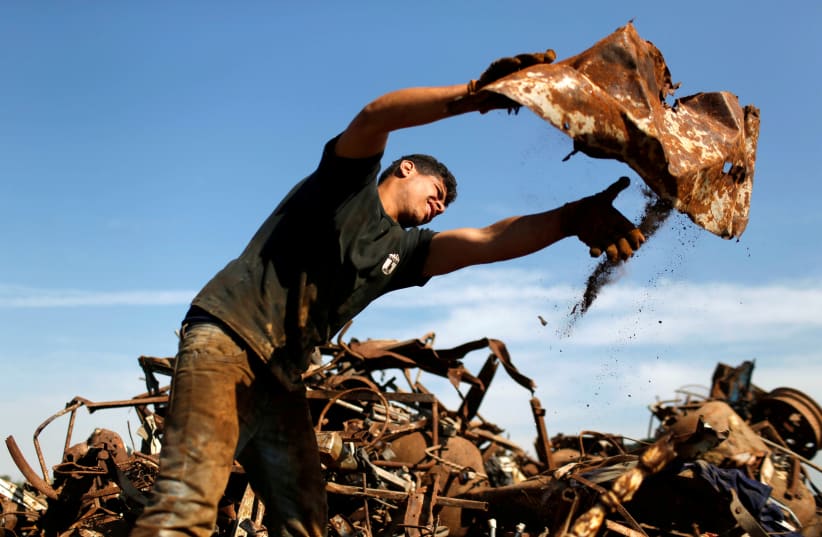That bleak scene is about to change.
Although the route up the coast to the Israeli cities of Jaffa, Haifa has been blocked to Palestinian vehicles and drivers by Israeli walls and checkpoints for years, a shift in Israeli policy means that thousands of the old cars and other pieces of scrap metal are now finally leaving Gaza.
Palestinian merchants estimate that some 200,000 tonnes of metal waste - from used truck parts to empty soda cans - have accumulated along Gaza's frontier since the imposition of an Israeli-led blockade in 2007.
But Israeli authorities in October cleared the metal for export to crushing plants inside Israel, creating a welcome source of revenue in impoverished Gaza.
Gazans sell the scrap metal for around 750 shekels ($228.16) per tonne. Israel allows 1,000 tonnes to be exported per week, a pace that would clear the backlog in four years.
Merchants say the exports have secured work for around 6,000 Palestinian laborers in Gaza, where unemployment is 49%.
"There is almost no work in town," said Emad Aqail, 39, who sorts metal into pressing machines ready for export. "Working in metals is exhausting, but it gives me the income I want."
Many Gazans would prefer to crush and recycle the metal for use inside the enclave, which is home to more than two million Palestinians.
But Israel and Egypt restrict the entry of machinery into the Gaza Strip, citing the security threat posed by its Islamist rulers, Hamas. Among the equipment prohibited is anything that could be used by militant groups to manufacture weapons - including new metal pressing machines.
Israel said the new scheme has so far earned around 3 million dollars for Gazans.
Lieutenant Colonel Abdallah Halabi, of Israel's Coordination and Liaison Administration for Gaza, said the aim was "to improve the Gaza Strip's economy, because the quality of life and economic development in the Gaza Strip can't be separated from the stability of the region's security."
Bahaa Al-Agha, of Gaza's Environment Quality Authority welcomed the clearout of a polluting hazard to Gaza's soil and water.
But the economic benefit would have been greater, he said, "if Israel allowed the establishment of factories to recycle these materials in the Gaza Strip."
